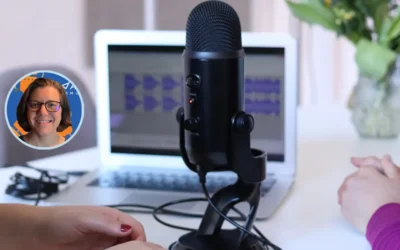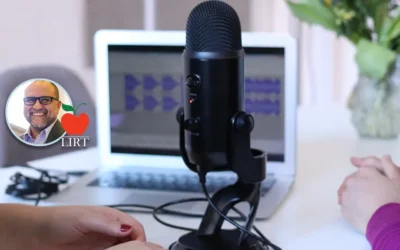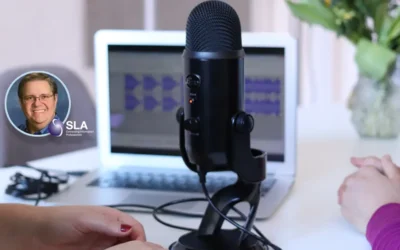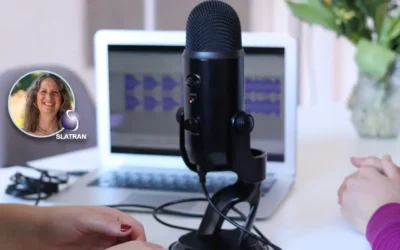Librarians and Technology #11: Productivity Tools for Special Librarians
Miriam Kahn, MLS, PhD
Productivity, both at the information center level and of individual information professionals, is one measure that demonstrates value to your organization. Information Technology provides lots of tools, but it’s our responsibility to put them to good use and be productive at the same time.
Since most organizations ask departments to demonstrate return on investment (ROI), high project completion rates are essential to justify how the organization benefits by you and your colleagues’ actions, work, and productivity.
So how do you stay productive and useful to your organization? What are the right productivity skills for special librarians? What tools do information scientists have in their toolboxes?
Eliminate multi-tasking in favor of serial mono-tasking and focused energy. We’ve already looked at this issue in the past few blog posts. Minimize or eliminate distractions to enhance productivity. In addition, negating myths about the efficacy of multi-tasking is a given. Focusing on one task at a time is the best way to get a project started and completed on time. Scheduling tasks and breaking them into small bits, even in increments of ten minutes, means the project moves forward and closer to completion. For more complex questions and research projects, allocate uninterrupted and distraction-free time slots of thirty to sixty minutes to facilitate retention and connection of facts and figures.
Problem solving in collaboration with colleagues throughout the organization, with experts in the field, improves use of technology and increases productivity. Let’s face it, few work in a vacuum, especially in the information professions. Brainstorm about research techniques, resources, and alternative approaches to obtaining requested information from familiar and new catalogs, databases, and records. This is particularly effective when researching a complex question or endeavoring to find that elusive fact from a forest of little bits of information. While information professionals have a wide range of research tools at their disposal, there’s always something new to discover, always a new database full of the information your researcher seeks.
Let’s put this idea of harnessing productivity into practice.
Harness research tools in the information professional’s toolkit. Skills for special librarians include considered and targeted mining of relevant catalogs, databases, indices, and records; this improves productivity and speeds retrieval rates. This productivity skill should be “old hat” for veteran information professionals. We’ve been trained to make the best, the most efficacious use of reference tools in the information center. The same can be said of information professionals knowing the “ins and outs” of the various databases and reference tools at their disposal. Rather than flailing around in Google, Wikipedia, or even basic search functions, utilize the advanced search functions of research tools.
An arsenal of specialized and subject specific databases, catalogs, and record groups means librarians, archivists, and records managers perform targeted searches of resources when retrieving relevant materials for patrons and researchers. For example, when a researcher requests examples of the use of horses on the battlefield during WWI for an upcoming exhibition, a search of databases with images and documents is the first stop in the complex search and long-term project. After retrieving photographs and reports, the researcher—in collaboration with the information professional—can develop targeted searches of government documents, legislative reports, and even detailed histories of the use of horses on the battlefield. Knowing your institution collected these types of records or participated in similar activities will speed up the search and retrieval process and produce a list of resources the researcher can winnow down into useable materials. Harnessing research tools is just one step in a complex research project. Providing results, recommendations, and reports is another step toward successful transfer of information from the information center to researchers or targeted audiences.
Deep thinking through deep, extensive, and/or targeted research requires taking a step back when examining and then contemplating results of reference projects. Deep thinking isn’t just clicking on the first item or first results in your search. Deep thinking entails giving yourself time to think in both linear and non-linear manners.
Give yourself the opportunity to let the information from your research to sift into what you already know about the topic. Take the time to brainstorm with yourself or a colleague, to ‘flit’ from idea to idea.
Write down your ideas, however crude and poorly conceptualized. Make lists as a way to retain your ideas, to keep from forgetting what your brain connected together.
Deep thinking is an integral part of project drafting. Can’t figure out where to start writing? Just jump in and start writing. Remember that the introductory matter is written last. Still can’t get your thoughts onto “paper”? Talk to your digital recorder, record yourself explaining your ideas. Transcribe the recording, fleshing out your ideas. This is all part of the writing process. Throughout it all, minimize or eliminate distracting e-mail and social media. Find a quiet place to pull your ideas together. This is, perhaps, the most difficult step in deep thinking, writing, or complex research projects but is an essential skill for special librarians. Now, take a break and let the data sit.
Incubation or taking breaks from “Deep Thinking” allows the pieces to come together. Incubation sometimes entails a walk or a session in the garden, sometimes it’s just talking through the problem with a colleague as described above. Incubation gives you the time and permission to let ideas ferment and germinate.
“Incubation” associated with writing and research projects comes after the drafting stage. When you are working on a complex reference project, incubation falls between the first search effort and the targeted, sophisticated deep dive into specialized reference tools. Think of incubation as a stop or series of stops on a long-term project. It’s what runners and long-distance bike riders do; “sprint and recover,” rest, rejuvenate, and start again.
Incubation lets the brain process in the background. Give yourself permission to do something else, to let the project sit for a day or two, for a week, even a few hours. Now that you’ve refreshed yourself, write up your new ideas, connections between concepts, and big picture ideas along with examples. If you aren’t quite “there” yet, repeat the writing, incubating, and revision stages until the research project is polished and presentable.
Summing it up
Productivity is a tool you can harness to successfully complete projects in the most efficient manner. After eliminating external and internal distractions, utilize targeted reference and research tools, think deeply about what’s been retrieved, let the search and its results incubate, then attack with vigor.
Food for thought:
Olga Mecking, The Case for Doing Nothing NYT (April 25, 2019)
The next blog post in the series Librarians and Technology will examine the role of information professionals vis-a-vis technology.
Miriam Kahn, MLS, PhD
Miriam B. Kahn, MLS, PhD provides education and consulting for libraries, archives, corporations, and individuals. See Miriam’s pieces for Lucidea covering library technology and skills for special librarians. Also check out SydneyEnterprise, Lucidea’s powerful ILS.
Similar Posts
Interview with Susannah Barnes about the SLA Data Community
Susannah Barnes is the Co-Lead of the Data Community for the Special Libraries Association. If you work with data in any capacity, this interview will be of interest to you.
Interview with Victor Baeza about ALA’s Library Instruction Round Table
Interview with Victor Baeza, President of LIRT, about how it benefits from and supports special librarians whose roles involve teaching or training.
Interview with Eugene Giudice, SLA Treasurer
Interview with SLA’s Treasurer about the future of the special library profession and how the Special Libraries Association can benefit librarians
Interview with Cara Marcus on Transportation Librarianship and SLA
Interview with Cara Marcus, the president of the Special Libraries Association (SLA) transportation community about transportation libraries and SLA
Hosting service
Enjoy all of the benefits of your Lucidea solution with secure, reliable, stress free hosting
Programs & incentives
No matter your size or budget, we’ve got you covered, today and tomorrow




Leave a Comment
Comments are reviewed and must adhere to our comments policy.
0 Comments